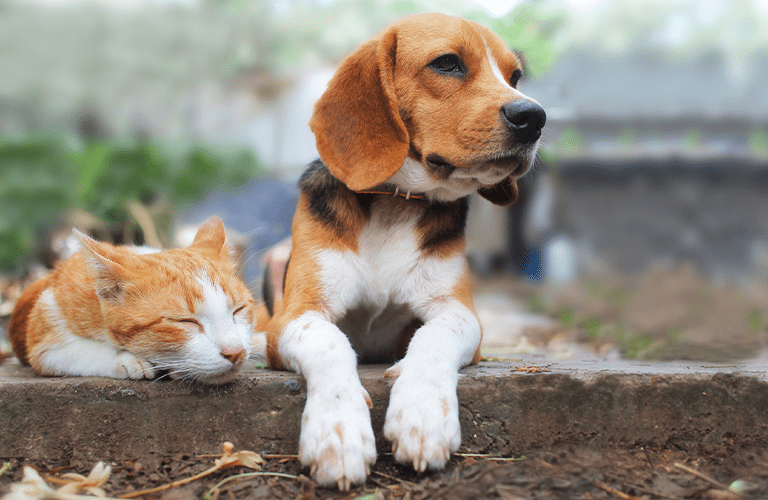Why We Spay and Neuter


Spaying or neutering your pet has a much bigger impact than you might think.
Your pet certainly benefits from their spay or neuter first and foremost, but the surgery also indirectly benefits hundreds of other animals, too. At Amberly Village Veterinary Hospital, we want the dogs and cats of Cary to be healthy, happy, and safe in loving homes. Spaying and neutering are the most effective ways to reduce stray animal overpopulation and increase the odds of permanent home placement for shelter dogs and cats.

How Will Surgery Affect My Pet?
First, spaying and neutering do not change personalities in pets, so do not expect your bouncy pup to become quiet and docile. Every pet grows and changes in their own way, but certain traits are there to stay.
Additionally, you should not have to worry about your pet gaining weight after surgery. Update their diet according to their needs as they grow and keep up with their exercise, and they should maintain their proper weight.
Lastly, the sooner your pet is spayed or neutered, the more quickly they’ll recover. Older pets that have surgery are more at risk for complications during surgery. If you have questions or concerns about when to spay or neuter your pet or how they’re recovering at home after surgery, please call us at (984) 238-2284.
